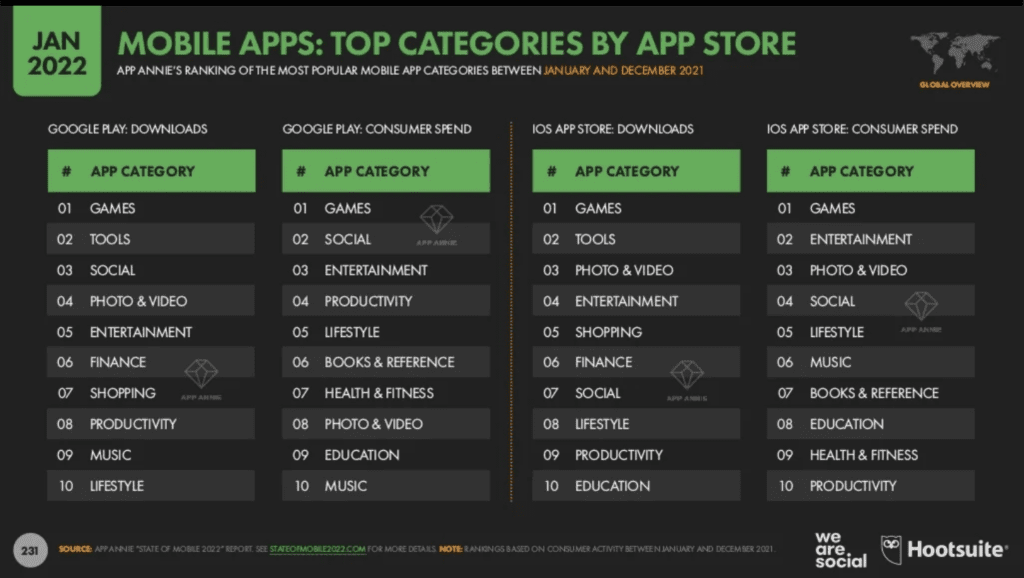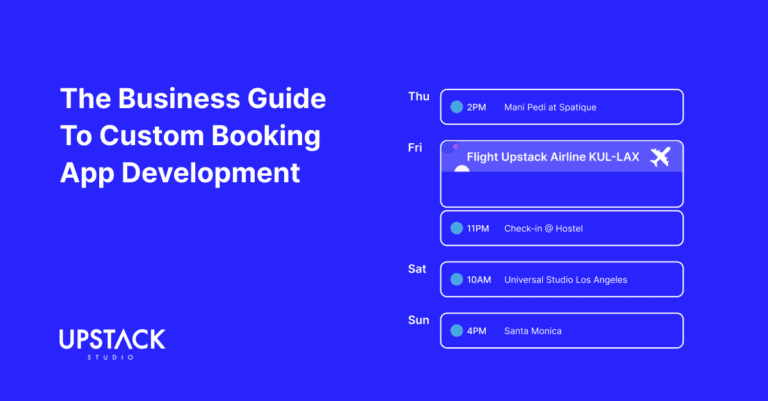This is a complete guide to whether or not your business needs a mobile app in 2022.
If all the different points of view out there are confusing you, continue reading and you’ll find the definitive answer in this article to help you make the final decision.
Let’s dive right in.
Here’s a juicy stat you probably already knew:
According to the Digital 2022: Global Overview Report, 92.1% of the 4.95 billion Internet users surf the web on their mobile phones.
That alone tells you there’s a huge demand for mobile apps (that add value).
And you may be feeling like you should be cashing in on that demand.
That’s a big, big pie, and you want a slice.
But does your business really need a mobile app?
For a definitive answer, try asking yourself (and your partners) these six questions.
1. Will an App Help Increase Revenue or Decrease Costs?
Building and maintaining an app can be quite challenging and (expensive).
So it better provide some tangible value to the business.
If you’re building an app to:
- improve engagement with your customers
- get a deeper understanding of customer needs
- boost customer loyalty and trust
- enhance brand recognition
- promote new services or products more effectively
- CONVERT MORE SALES (sorry, money makes us excited)
Then, you are on the right track.
If you’re thinking of building an app just to make the business seem current, we’d advise you to reconsider. There are lots of less expensive ways to do that.
Always make sure that the app you plan to build can either directly or indirectly:
- increase topline revenue for your company; or
- reduce costs by improving efficiency
2. Is Your Target Audience Mobile-Oriented?
When your customers use your solutions, are they more likely to be on their phones or computers?
Or could it be a mix of both?
As a business owner, you should understand your customer’s behavior and go where they go.
If your target users are a part of the mobile workforce, they are on the move most of the time.
A mobile app for them would make sense.
But mobile apps might not be necessary if they are predominantly on their desktops and require larger screens for complex data displays and functions.
So how do you know if your users are mobile-oriented?
You can always check.
2.1 Is there any demand from your current users to have an app?
Let’s use Airbnb as an example.
They started with a web application.
Then the user base grew. And kept growing.
Hosts started having multiple units in different locations. They increasingly needed to travel to different locations.
They had now become mobile-oriented. It made perfect sense for Airbnb to build a mobile app to provide their users with what they wanted.
2.2 Use Google Analytics to find out where your customers are
Next, you can use Google Analytics.
Open up the User tab, select Tech > Tech Overview,
You will be able to see how many visitors are using mobile devices or websites.
Moreover, if you select Tech Details, you can see the type of devices they are using to browse.

3. Is There a Market for Your Business Niche?
In 2021, statistics show that 230 billion apps were downloaded worldwide.
This tells us that the mobile app market is in high demand but also very competitive.
Hence, you need to build an app that solves a real problem for your users.
Because if it isn’t, no one will be downloading your app and you’ll be wasting hundreds of thousands of dollars.
Take a look at the picture below, the top 5 most popular categories downloaded on both the Google Playstore and Apple Appstore are almost the same.

But don’t try to create yet another copycat app.
Instead, look for a smaller niche where you are very familiar with the target user’s pain points and create a solution that solves their problems.
Do the market research to find out if enough people are looking for that kind of solution.
4. Will Your Customers Use Your App Often?
Getting users to download your app is just the beginning of the user acquisition journey.
You want your customer to use your app actively rather than just accumulating downloads.
To help you answer this question, think about the potential interactions your customers will have with your app.
The more frequently your customers need to depend on your app to solve a problem of theirs, the better.
For example, a food and groceries delivery business.
First, most people eat at least 2-3 meals a day.
Second, most families will go for groceries shopping at least once a week.
If you target the right audience, you will have users using the app at least once a week, probably up to once a day if they are busy working professionals.
Users will find it more convenient to have a mobile app since they can place orders anytime, anywhere, right from their fingertips.
On the other hand, if your goal is to showcase your products or services for marketing purposes, you probably don’t need a mobile app since a mobile-responsive website can already do that.
And you might have a hard time getting customers to download the app because let’s face it, who wants to install an app just to be sold to?
5. Is a Mobile App Necessary to Solve Your Business Problems?
As app developers, we always ask our clients these questions.
“What problems are you trying to solve?”
“Can you solve it without a mobile app?”
Everyone thinks it’s cool to have their own mobile app.
But do you want your app to help you make more impact and money?
Or do you just want it to look cool?
Nothing cool about an app with zero downloads gathering digital dust.
Sometimes, websites and other online channels are more than enough to accomplish your goals.
6. Do You Need Native Smartphone Features?
Native features like camera access, gyroscope, location tracking and biometrics will work better in a mobile app compared to a mobile site.
So if your app requires any of these features to work reliably, then a mobile app might be the way to go.
Having access to these native features directly through a mobile app will help improve user experience too.
So, Does Your Business Actually Need an App?
To know if you should develop a mobile app for your business, you should have at least 4 YESes out of the 6 questions:
- Does your app help increase revenue or decrease cost? [YES/NO]
- Is your target audience mobile-oriented? [YES/NO]
- Is there a market for your app? [YES/NO]
- Will your customers use your app often? [YES/NO]
- Is a mobile app absolutely necessary to solve the problem? [YES/NO]
- Do you need native smartphone features? [YES/NO]
We hope these questions have been helpful in determining whether a mobile app is necessary.
How many YESs’ did you get from all the questions?
Anything over half, and you might want to consider having a chat with us.





